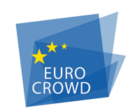Our research into the 2023 data on ECSPR-licensed platforms offers valuable insights into how existing market participants have embraced the new regulation. While it is not possible to draw definitive conclusions about individual platform motivations or levels of professionalism, the data highlights notable disparities across national markets.
Our analysis focused on countries with well-established trading markets, including Belgium, France, Germany, Italy, the Netherlands, Spain, and Sweden. We rely on data from 106 platforms licensed by the end of 2023, as reported by ESMA, as well as data from the European Crowdfunding Market Report 2023 by LenderKit, CrowdSpace, and UiA, which serves as a benchmark for the size of the pre-ECSPR crowdfunding market.
Licensing Rates Across Key Markets
- Belgium: 43% of platforms licensed
- France: 38% of platforms licensed
- Germany: 7% of platforms licensed
- Italy: 33% of platforms licensed
- Netherlands: 21% of platforms licensed
- Spain: 21% of platforms licensed
- Sweden: 13% of platforms licensed
Key Insights:
- A significant portion of countries have less than half of their active incumbent platforms licensed under ECSPR. This suggests that a large number of platforms are either operating without regulatory oversight or may no longer be active in the market.
- Markets with lower licensing rates, such as Germany and Sweden, may catch up in early 2024, as many applications may not have been granted or published by ESMA by the end of 2023.
- Despite ECSPR coming into effect in 2021, a considerable number of platforms were still awaiting their licenses by the end of 2023, indicating potential challenges in meeting regulatory requirements.
The Slow Uptake of ECSPR Licensing
While the ECSPR law was published in 2020 and came into effect in 2021, the uptake of licenses by platforms was slower than expected. The first ECSPR license was issued to an incumbent platform in Spring 2022, six months after the law took effect. This slow adoption is surprising, especially considering that ECSPR offers crucial improvements in legal oversight, consumer protection, and business conduct.
However, several factors may explain this delay. These include legal uncertainties, particularly in 2021 and 2022, as ESMA and EBA finalized outstanding technical standards. Additionally, national competent authorities faced delays in processing applications, which further contributed to the slow licensing uptake. While anecdotal evidence offers potential explanations, we refrain from speculating without clear data.
Conclusion and Recommendations
There is a clear need for continued efforts by ESMA to improve compliance and ensure that all European platforms offering securities and loans are licensed under ECSPR. This compliance is essential to create a transparent, lawful, and secure environment for all stakeholders, including platforms, investors, and project managers.
To strengthen regulatory convergence and oversight, it is crucial that national competent authorities work to harmonize the application of the law across the European crowdfunding landscape. We support the latest initiatives by ESMA to establish a level playing field for crowdfunding platforms across Europe.



